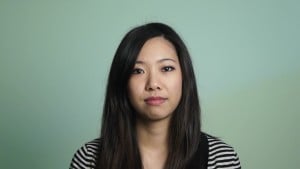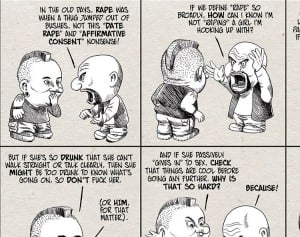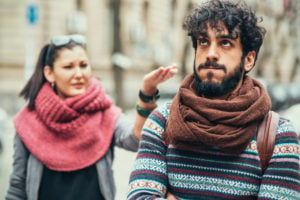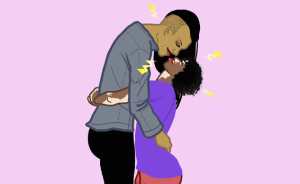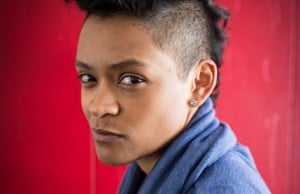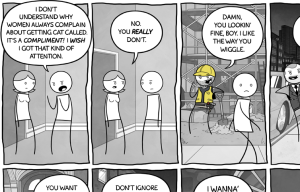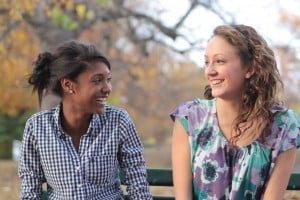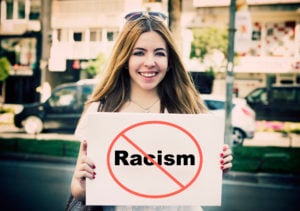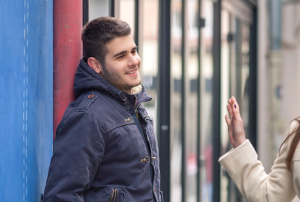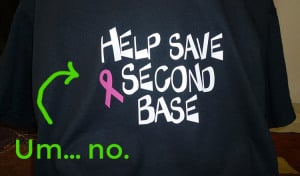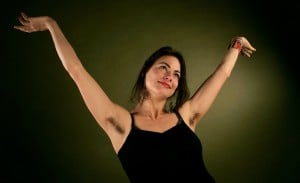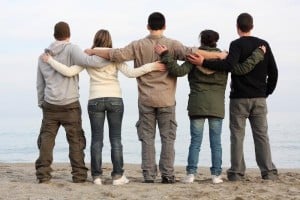
Source: Breaking Muscle
Every year, I struggle when the days get shorter, grayer, and colder.
I feel the sadness and inertia creep over me around the middle of November, and I grapple with it well into March or April. Never, though, has it been as intense as it’s been since moving to Minnesota (or Minnesnowta, as I like to call it).
In addition to the simple weight of the season, I’ve also been wrestling with some personal hurt and trauma, as well as the hurt and trauma of some people I love so very much.
As a result, even getting out of bed has been a struggle lately, and I’ve had to build extra structure into my schedule to make sure that I accomplish even the bare minimum of the hefty load on my plate.
So you can imagine my loving partner’s response when I told her that I would be spending the months of January and February in a 45-hour sexual assault survivor’s advocacy training through an amazing organization called the Sexual Violence Center.
“Jamie, is spending between seven and thirteen hours a week in a class that deals solely with sexual violence (not to mention the extra homework) the best thing for you right now?”
And honestly, I couldn’t give her a good answer.
The truth is that I was afraid that all of this talk of trauma and violence would only add to the weight that I’ve been carrying during this difficult time.
Yet, seemingly inexplicably, the class has helped tremendously.
I couldn’t explain why until a recent counseling session when my counselor asked about the class. I told her about my partner’s concern, and in my explanation, the words came to me.
“At first I was worried she was right, that the training program would make some of my other struggles worse. But when I’m sorting through the impact that sexual violence has had on my life and on the lives of those I love, what better place to be than with 25 other people who care deeply and passionately about eradicating sexual violence? It’s brilliant actually!”
A few days later, Daniela, one of the activist trainers from our program, tweeted something with the hashtag #communalcare.
That’s it! That hashtag named it.
As important as self-care can be, for many of us, communal care is equally as vital!
Holding Space
Obviously not all community or communal time is healthy and healing.
If you feel anxious in large groups, going out with friends to a concert (even of a band you really like) may not necessarily be healing or self-care for you. And even communal experiences that we enjoy may not be ones that help us to cope with or heal from the weight or trauma we carry in our lives.
But healing community is about holding space: holding space for love, care, reflection, laughter, crying, feeling what we’re feeling, dancing, screaming, sorting through, moving past, sitting with, or for whatever else we may need.
Healing community is not about putting our problems off on another person, but about holding space for us to set down the weight we’re carrying for a while, and sometimes it’s even about letting others hold and share our weight while we do the same for them.
In the words of one of the wonderful advocates in training from my class, “Everybody has issues, and [in this space], we’re all just healing with each other.”
I can tell you without a shred of doubt that spending time every week for two months talking about sexual violence with people who are not intentional activists and advocates would be quite the opposite of communal care.
But the space held within the advocates training program intentionally focuses on care, healing, and sensitivity, even when we’re talking about those things that make my chest tighten and my breath shorten.
As a result, when I feel that tightness in my chest, I know there are people whose chests are tightening with me, and I know there are people who are also ready and willing to hold space for me to talk through why my breath has shortened.
And more often than not, just knowing that space is being held is all it takes for me to breathe deeply and allow my chest to open, letting light into a dark space.
Communal Care for Introverts
At the same time, though, I recognize that being around other people isn’t always the most healing or recharging thing in the world. Some of us actually need time away from other people in order to find healing or calm. Knowing that is fundamental self-awareness.
Even for some introverts, though, time in community can be important to healing.
I wouldn’t call myself an introvert, but I am far more introverted than others perceive. Too much time around other people (even if it’s just one other person) leaves me feeling drained and craving time alone to work or read or watch Netflix or cuddle my dog.
At the same time, though, I am self-employed, and it’s entirely possible for me to spend entire days or weeks in my apartment, never interacting with other humans except for the hours that my partner is home.
I’ve learned, then, that while too much time around others is draining and far from communal care, too much time alone can also further my feelings of isolation and stagnation.
In turn, I’ve learned that even spending time in the community of a coffee shop, never actually interacting with other people, or in a one-on-one with a friend or my counselor can be healing in the way that it reminds me that I am never really alone.
Even when my work seems bleak or when my personal life feels burdened, community exists all around me.
Getting Stuck: A Metaphor
About a week ago, I was out shoveling snow to clear a parking spot for the car I share with my partner, and frankly, I was pissed.
I was cursing under my breath at the giant pile of snow that has accumulated from shoveling all of the snow that’s fallen since November without ever getting warm enough to melt.
I had a podcast playing in my headphones, but I wasn’t even really listening to it. I was just brooding – over winter and the other things that are weighing me down.
That’s when I heard a little voice shout, “Hey!”
Startled, I turned around, and a little girl said, “Sorry! I tried to get your attention, but you didn’t hear me.”
“It’s okay. What’s up?”
“Our car is stuck,” she said, and she pointed to a mini van a half a block away that was idling in the alley. “Can you help us?”
“Sure thing,” I said, happy to help, but honestly a little annoyed that this would slow down my progress in my shoveling chore.
When I got over there, the girl’s mom looked frustrated. She had hurt her hand while trying to get the car out, and it was clear she had been trying for a while. I immediately got to work, pushing with all my might while she pumped the gas, only spinning the tires down more into the ice and snow.
We tried everything to no avail, so after about fifteen minutes, I called my partner. She said she would hurry over to help. On her way, she told a few other neighbors that we might need some help.
Before I knew it, there were five of us pushing and pulling and shoveling and fighting to get that car unstuck, but it wasn’t budging. My partner went to get our car to see if we could tow it out of there with a Subaru Forester.
Needless to say, that didn’t work at all. But in the time it took for us to hook up the Forester, a neighbor with a snow blower came by and cleared the area around the car of snow, and another neighbor with a 4×4 Jeep came.
We hooked up the van to the jeep, and with everyone pushing from behind and me behind the wheel of the van, the Jeep inched forward. I heard a creak that made me nervous that we would harm the van in towing it out, but before I knew it, the van lurched forward, out of its ruts and into the space cleared for us.
Everyone cheered and high fived!
Just before we all went on our merry way, the guy with the jeep remarked, “This is why I love NordEast (the name of our neighborhood). I’ve lived here for seventeen years, and this is why. Neighbors take care of each other. When everything in the world is crazy, we take care of each other.”
After hearing those words, I went back to my shoveling, turning on Beyoncé and singing through a smile while finishing my work.
***
When everything in the world is tough, we have the power to take care of each other.
Until I started taking this advocacy training, I’d been feeling pretty stuck. I have wonderful supports and loving family and friends, but I needed something different. I needed a 4×4 of sorts. I needed a different kind of communal care.
And I’ve found it in a group of people who are passionate about doing whatever is within their power to help survivors heal and to eradicate sexual violence from our communities.
There’s tremendous power in that community. It’s the kind of power that heals. It’s communal care.
[do_widget id=’text-101′]
Jamie Utt is a Contributing Writer at Everyday Feminism. He is the Founder and Director of Education at CivilSchools, a comprehensive bullying prevention program, a diversity and inclusion consultant, and sexual violence prevention educator based in Minneapolis, MN. He lives with his loving partner and his funtastic dog. He blogs weekly at Change from Within. Learn more about his work at his website here and follow him on Twitter @utt_jamie. Read his articles here and book him for speaking engagements here.
Search our 3000+ articles!
Read our articles about:
Our online racial justice training
Used by hundreds of universities, non-profits, and businesses.
Click to learn more





